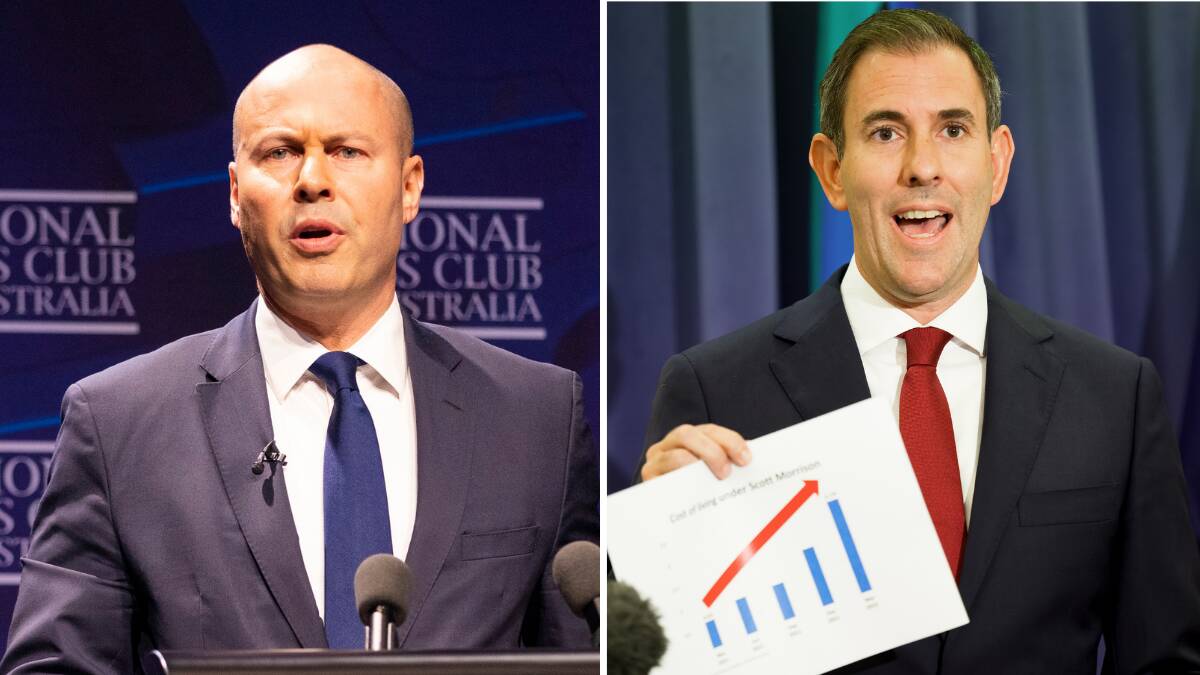An election rate hike is on the cards as the soaring price of food, housing and fuel escalates the political fight over cost of living and economic management.
Economists now expect the Reserve Bank will raise the cash rate at its May board meeting, after the latest consumer price snapshot revealed inflation had surged to its highest level in 20 years.
Australia's central bank hasn't lifted rates during an election campaign since 2007, when long-serving prime minister John Howard was turfed from office.
The prospect of a mid-election rate hike will intensify the battle over economic management, as Labor and the Coalition pitch themselves as the party best placed to steer Australia beyond the pandemic.
Prime Minister Scott Morrison and Treasurer Josh Frydenberg were on Wednesday blaming international pressures for driving inflation up to 5.1 per cent - the highest level since the GST was introduced in 2001.
But Labor's treasury spokesman, Jim Chalmers, has pinned blame on Mr Morrison as he declared Australians were being "smashed" as cost of living rose and wages stalled under the Prime Minister's watch.
Mr Chalmers made the comment as he unveiled Labor's economic and budget plan alongside colleagues Katy Gallagher and Andrew Leigh inside Parliament House.
After dumping the raft of controversial revenue measures which Bill Shorten took to the failed 2019 election, Labor has confirmed an Albanese government would pursue just one tax reform: a crackdown on multi-national tax avoidance.
The measure was expected to raise $1.89 billion over the next four years.
Labor also plans to save $3 billion by slashing outsourcing in the public sector.
While both parties were prepared for rates to rise this year, that could happen earlier than expected following the release of the consumer price figures.
Economists from NAB and ANZ expect the Reserve Bank to hike the cash rate, which is 0.1 per cent, by 15 basis points at next week's board meeting.
The RBA's inflation target range to lift rates is 2 to 3 per cent.
Mr Morrison and Mr Chalmers wouldn't be drawn on the implications of a rate hike in the middle of an election campaign, citing the central bank's independence.
But the two camps have stepped up their attacks on the others' economic credentials, bringing cost of living back to the forefront of an election campaign which has been dominated in recent days by the row over the China-Solomon Islands security pact.
Mr Morrison wasn't trying to sugar coat the cost of living pressures, which have been exacerbated by Russia's invasion of Ukraine.
READ MORE
Instead, he focused on casting the Coalition as the better team to guide Australia through an uncertain global environment.
"There are so many moving parts in our economy at the moment," he said.
"The stresses and the risks in our economy, with the pressures that are coming in are very, very real, and they have an impact when it comes to how much people pay."
"So there is a choice about who Australians believe are going to be able to best able to manage to keep those pressures down on rising cost of living."

The Coalition pre-election budget included a raft of measures to ease cost of living pressures on households, including a six-month halving of the fuel excise and a $250 handout to welfare recipients.
Mr Chalmers blamed Mr Morrison for the rising cost of living.
"Australians are getting absolutely smashed by the rising cost of living on Scott Morrison's watch," Mr Chalmers said.
"This is Scott Morrison's triple whammy of skyrocketing cost of living, rising interest rates and falling real wages.
"And that's what the number was all about today.
"This inflation number should be a wake up call for a government which is out of touch, out of plans and out of time."



